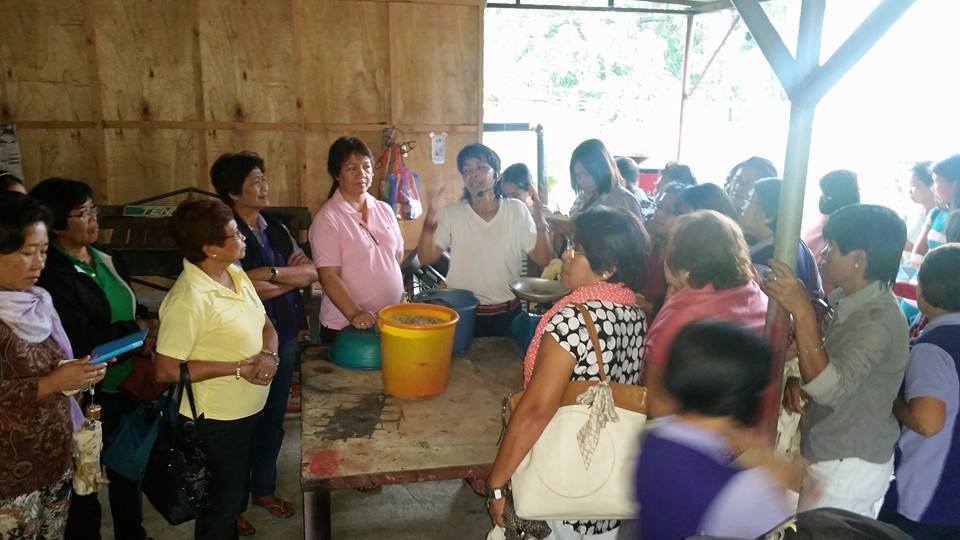The key to good coffee? Give farmers better quality of life
ECONOMIC RIGHTS

Photo from Bote Central
Groups push for PRESENT bill as social enterprises bloom
Social enterprises in the Philippines and in Asia have been dubbed as ‘potential game changers’ as they continue to provide jobs, reduce poverty, and improve the quality of life of marginalized communities.
With around 164,000 social enterprises in the Philippines, they have proven to be effective models in increasing employment and local productivity. In a study by the British Council and the Philippines Social Enterprise Network, social enterprises made up almost 5 per cent of the country’s job growth.
The Poverty Reduction through Social Entrepreneurship (PRESENT) Coalition, through the PRESENT Bill, seeks to promote an enabling environment for social enterprises to grow and thrive.
Part of this coalition is Bote Central, a social enterprise that has been directly propelling Filipino coffee farmers up the value chain since 2004.
Bigger interests at play
Vie Reyes, co-founder and CEO of Bote Central, explained that their social enterprise went through several transformations before finally diving into the coffee business.
In 2004, Bote Central started taking the bottle frosting and post-processing business by storm – hence their name. Frosting bottles meant that they take clear bottles and make it translucent to give a frosted effect. The old process, Reyes said, was “low tech” and had posed several health risks and safety hazards to the operator.
Because there was no available technology back then, Reyes and her husband, Basil, took on the task of filling that gap. They came up with a much safer and more efficient process. This encouraged big beverage companies to avail of their services.
“When we see that there’s a need, we try to come up with a solution and a product to solve the problem. We always try to turn the problem into an opportunity, not just for the entrepreneurs, but for the market you serve because you solved the problem,” Reyes said.
Come 2007, big businesses copied the technology for their own interests, pushed Bote Central to bankruptcy, and left them with almost nothing.
Social enterprises, especially newer and smaller ones, face a common issue: obtaining capital and loans for their business. The Institute of Social Enterprise in Asia (ISEA) cited that over 53 per cent of social enterprises have this problem.
The PRESENT Bill aims to address this by increasing accessibility to funding mechanisms, such as providing special credit windows with non-collateralized loans, business grants, strengthening of agriculture and fisheries credit policy, and tax incentives.
The case for coffee
Reyes turned their problem into an opportunity and entered the arengga palm vinegar business. This opened the door for them to delve into coffee.
Bote Central sourced their organic vinegars from the sugar palm trees, Arenga pinnata, that are naturally propagated by civets. Their vinegar collector also took on the role of civet coffee droppings picker. For the first year, they only collected 5 kilos and was sold out. The following years, they collected more and doubled the prices.
“I started knowing the market more. We became bolder and more aggressive,” said Reyes. Despite the lucrative results, they respected the ecosystem and ensured that civets are free in their own natural habitat. Bote Central did not get any droppings from caged civets, nor propagated civets for their own interests.
All the success were felt by the local collectors and communities. After all, Bote Central paid a good price for the droppings.
Reyes shared that local coffee farmers started to approach them upon seeing that there are people who pay fair prices for their produce. When Bote Central saw that a market for regular coffee was available, they started sourcing them directly from the farmers.
(De) value chain
In 2004, market price for regular coffee is just PHP 40-50 per kilo, but Bote Central sourced them at PHP 100-120 per kilo. Reyes explained that the coffee value chain benefits those who have more knowledge, capacities, and resources, and those are not the coffee farmers.
“We can’t continue this business if the very people who grow coffee don’t want to do it anymore,” she said.
Majority of Filipino farmers do not own the land they till, and they are forced to be at the mercy of landlords, traders, and middlemen. Factors such as low produce prices, high costs of inputs, and limited support from the government push agricultural workers in a vicious cycle of debt and poverty.
Bote Central tries to change this. They directly deal with the farmers to avoid unnecessary traders and middlemen. This set-up also ensures that farmers receive the bulk of the payment and can negotiate on their own terms.
The right way of doing business
Reyes shares that the relationship between Bote Central and the coffee farmers is so much more than that of a buyer-supplier. She calls it a “growing community” of entrepreneurs doing fair business with one another.
In 2007, they introduced the novel idea of village-level coffee processing facilities. Through partnerships with the government and other funding agencies, they have provided community roasting business units to over a hundred farming groups all over the Philippines.
The dream for them is to start their own social enterprises and be change actors in their own communities.
“Social enterprise is the right way of doing business. It is friendly to both the community and environment,” explained Reyes. “But if our social enterprises don’t get proper support from the government, they will not prosper.”
One of the main features of the PRESENT bill is for the government to recognize that social enterprises are “transformational partners of the poor” and to provide support programs, incentives, and a governing body for these groups to thrive and develop.
This is especially needed as social enterprises need additional support to cope with the effects of the pandemic. According to ISEA, 55 percent of social enterprises experienced major downturns; 41 percent experienced some setbacks, and only 4 percent reported any positive impact due to the pandemic restrictions.
The current practice now is that for farmers to have a better quality of life, they need to produce only good quality coffee. However, for Reyes and Bote Central, farmers should have a better quality of life so they can produce good quality coffee.
“We just teach them on how we business and provide tools that they can use,” Reyes said. “We are just propellers, but these groups do and sustain the actions. Their success is theirs.”
When asked what changed in the community since Bote Central entered the picture: “coffee in the Philippines tastes even greater,” and even more so when the PRESENT Bill is passed. ###
